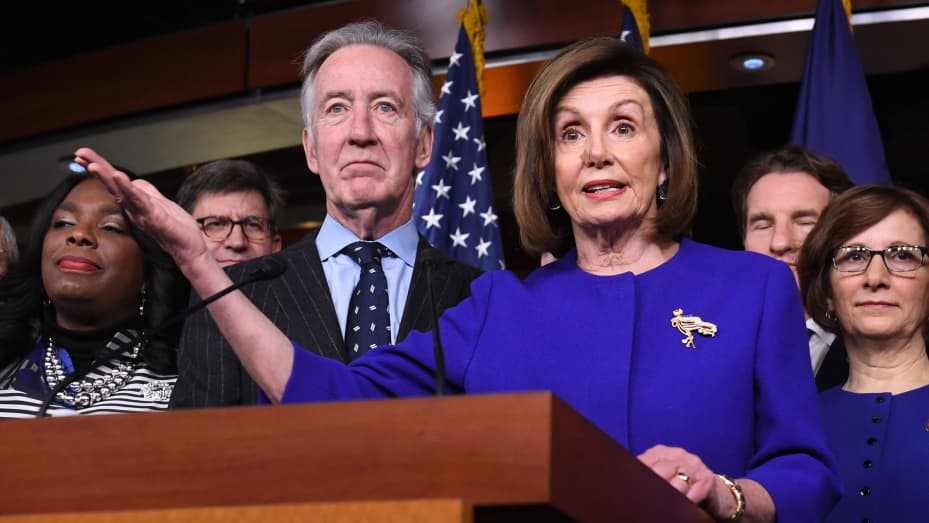The House tax plan would not go as far as President Joe Biden initially hoped. The president had called for a 28% corporate tax and a 39.6% capital gains rate.
Biden has promised not to raise taxes on anyone who make less than $400,000 per year.
The House proposal would take huge steps to reverse the 2017 Republican tax cuts. It would hike the corporate rate to 26.5%, after the GOP slashed it to 21% from 35%.
Democrats would also restore the top individual rate to 39.6% after Republicans cut it to 37%.
The GOP has opposed the Democratic plan in part because of proposed changes to the 2017 law. Republicans also would not reverse any of the cuts as part of the Senate-passed bipartisan infrastructure bill.
Under the House Democratic plan, the top corporate rate would apply to income above $5 million. The first $400,000 in income would be taxed at an 18% rate.
A 21% rate would apply to corporate income between $400,000 and $5 million.
The plan would invest nearly $79 billion in IRS tax enforcement to increase revenue raised.
It would hike taxes on certain tobacco products. The proposal would also change or scale back certain deductions for high-income individuals and corporations to raise money.
The committee outline does not include a proposal to raise the $10,000 cap on state and local tax deductions set under the GOP law. A handful of Democrats from high-tax blue states such as New Jersey and New York have said they will oppose a reconciliation bill that does not raise the deduction limit.
In a joint statement Monday, Ways and Means Committee Chair Richard Neal, D-Mass., Rep. Bill Pascrell, D-N.J., and Rep. Tom Suozzi, D-N.Y., signaled House Democrats will address the cap in a future version of the tax plan.
“We are committed to enacting a law that will include meaningful SALT relief that is so essential to our middle-class communities, and we are working daily toward that goal,” the representatives said. Suozzi and Pascrell are among the lawmakers who said they will only vote for a spending bill that raises the deduction limit.
Democrats plan to use the new revenue to fund expansions of child care, paid leave, pre-K education, community college, public health insurance plans, household tax credits and green energy incentives, among other investments.




